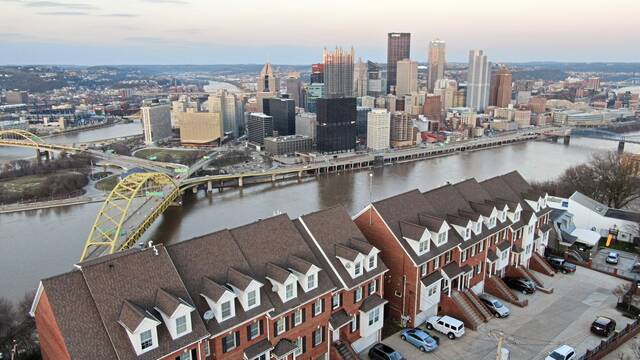https://triblive.com/local/judge-orders-hold-on-pittsburghs-rental-registry/
Judge orders hold on Pittsburgh’s rental registry

A judge has ordered a stay on Pittsburgh’s rental registry, a program that was struck down in court once before.
This comes as the Apartment Association of Metropolitan Pittsburgh is suing the city over the measure, which was set to go into effect on May 29.
City Council in November approved legislation to create a rental registration and inspection schedule for rental units, though a similar measure enacted in 2009 failed amid legal battles regarding related fees. The new program would utilize a lower fee structure, and also would include lead dust wipe inspections for rental properties constructed before 1978, as required by the city’s new Lead Safety Ordinance.
The Apartment Association of Metropolitan Pittsburgh announced their challenge against the measure in March. Lawrence Fisher, an attorney with LawFirst, who is representing the organization, called the rental registration “unconstitutional.”
Judge Joseph James last week ordered a 60-day stay on the rental registry’s implementation as the lawsuit proceeds.
“Obviously this is a positive development from the perspective of the apartment association,” Fisher said. “We’re happy to see that the rental registration ordinance, flawed as we perceive it, will not be going into effect on May 29.”
The pause “provides for an opportunity now to examine how the city came up with its new fee regime and to otherwise look into the reasons or lack thereof for the parameters of the lead safety ordinance,” he said.
The lawsuit, which was filed in Allegheny County Common Pleas Court, revolves again around the fee — the same argument that nixed the program once before. Fisher argued that the new fee, while lower, still has “no relationship with the cost of the program.”
A judge who heard arguments about the city’s first attempt at a rental registry ruled the city could not enforce the ordinance until it had implemented a “fee that is fair, reasonable and not grossly disproportionate to the cost of maintaining the program.”
The fee structure that was suggested then included a rental registration permit fee of $65 per unit for up to 10 housing units, $55 per unit for 11 to 100 units and $45 per unit for more than 100 units.
The updated legislation lowered the costs, which now include a $16 application fee, a $5.50 charge for an inspector to travel to the unit and a $14 charge per unit.
“The substance of the rental registration program has already been examined in court and it was clear that the city can enforce this commonsense regulation that helps protect renters in our majority renter city,” Mayor Ed Gainey’s office said in a statement. “Our fee is fair and does nothing more than recoup the costs to carry out the program and it is a shame that once again the work to protect renters in our city is being delayed.”
Council members said they took the prior legal issues regarding the program’s fees into account when crafting the new legislation. When the measure was passed, Councilman Bruce Kraus said he believed “the bill is constructed in such a way that it would withstand any scrutiny in courts.”
The lawsuit also challenges the portion of the city’s new Lead Safety Ordinance that requires rental properties build before 1978 be tested for lead. Fisher has said the measure singles out rental properties, as other buildings — like public housing or university-managed dorms — are not required to undergo lead testing.
A hearing will be scheduled after the 60-day stay, Fisher said, at which point a judge could extend the pause.
Copyright ©2026— Trib Total Media, LLC (TribLIVE.com)
